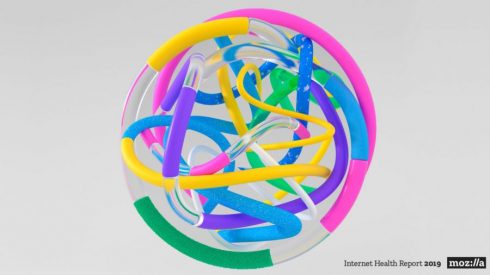
We are living in a world where we are more connected than ever, but that connectivity can leave us vulnerable to attack. We communicate online, we shop online and we trust that our personal and private information will be safe online. However, history has shown that isn’t always the case with even the most prominent companies suffering from hack attacks. But as time goes on, as technology becomes more advanced and as companies learn from their mistakes, the hope is to create a healthier online environment.
Mozilla has released its 2019 Internet Health Report, which found that while the state of the Internet is still complicated, there are a number of improvements being made. “We have not ‘fixed’ the problems, but it does feel like we’ve entered a new, sustained era of debate about what a healthy digital society should look like,” Mark Surman, executive director of the Mozilla Foundation, wrote in a post.
Over the last year the European Union has implemented its General Data Protection Regulation, which brought awareness to how sensitive data is being used and made companies responsible for that data. Since the regulation went into effect, tens of thousands of violation complaints have been filed against companies. In addition, the report finds calls for privacy are starting to become more mainstream. Microsoft recently called for the US to follow the EU and establish new data privacy laws, and California is gearing up to implement its consumer privacy act. Data privacy is on everyone’s mind today, and companies are now having to find create new ways to retain users and gain their trust.
We are also seeing the implementation of artificial intelligence across a number of different consumer products. While the use of AI can make devices smarter and provide a better experience, it can also cause unintentional harm. For instance, the report found using AI for commercial facial recognition can create another layer of bias and be used to determine “things like who gets a loan, who is likely to get a job, and who is shown what on the Internet,” Mozilla explained in a post. As a result, the company is finding more technologies and activists are taking a stand to build more responsible AI. Google recently revealed its seven principles for creating AI apps, and introduced new initiatives to help the company stick to those principles. Microsoft also called for public regulation of recognition technology.
The Internet also provides a wealth of information and a platform where users can discuss certain topics. One area that is becoming more apparent is that Google, Facebook, Microsoft, Amazon, Apple, Baidu, Alibaba and Tencent are dominating and competing with one another for power and control of the Internet. “Over the past year, more and more people focused their attention on the fact that eight companies control much of the Internet. As a result, cities are emerging as a counterweight, ensuring municipal technology prioritizes human rights over profit — the Cities for Digital Rights Coalition now has more than two dozen participants,” Surman wrote.
Then there are other concerns that continue to cause problems online globally. For instance, the report found that Internet censorship is only continuing to flourish, with governments all over the world restricting Internet access. Biometrics are being misused and giving unwanted access to things like DNA information and GPS location. Companies are continuing to create AI solutions without taking any repercussions for their actions. “As a result, technology used in law enforcement, banking, job recruitment, and advertising often discriminates against women and people of color due to flawed data, false assumptions, and lack of technical audits,” Surman wrote.
So while we are making efforts everyday to provide a safer place for people to “live” online, the report brings to light that it is a long and probably never-ending battle. The report “is meant to offer technologists and designers inspiration about what they might build; to give policymakers context and ideas for the laws they need to write; and, most of all, to provide citizens and activists with a picture of where others are pushing for a better internet, in the hope that more and more people around the world will push for change themselves. Ultimately, it is by more and more of us doing something in our work and our lives that we will create an internet that is open, human and humane,” Surman wrote.
The GDPR was one step in the right direction towards keeping the Internet safe, but we still have a long way to go and a lot of mistakes to correct. Data privacy is just one piece of the puzzle. As technology keeps advancing, the work being done to protect online users is only going to get harder.






